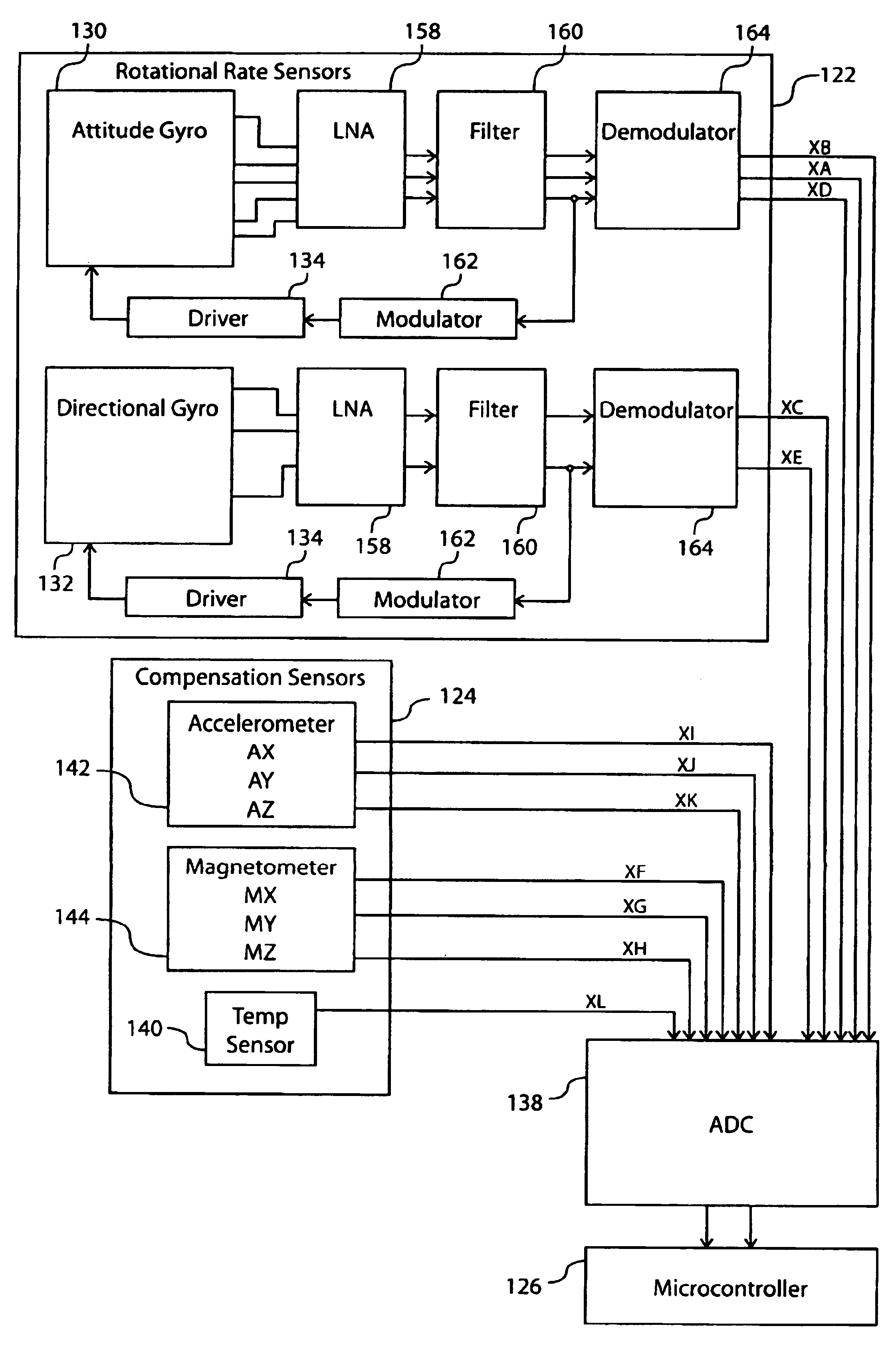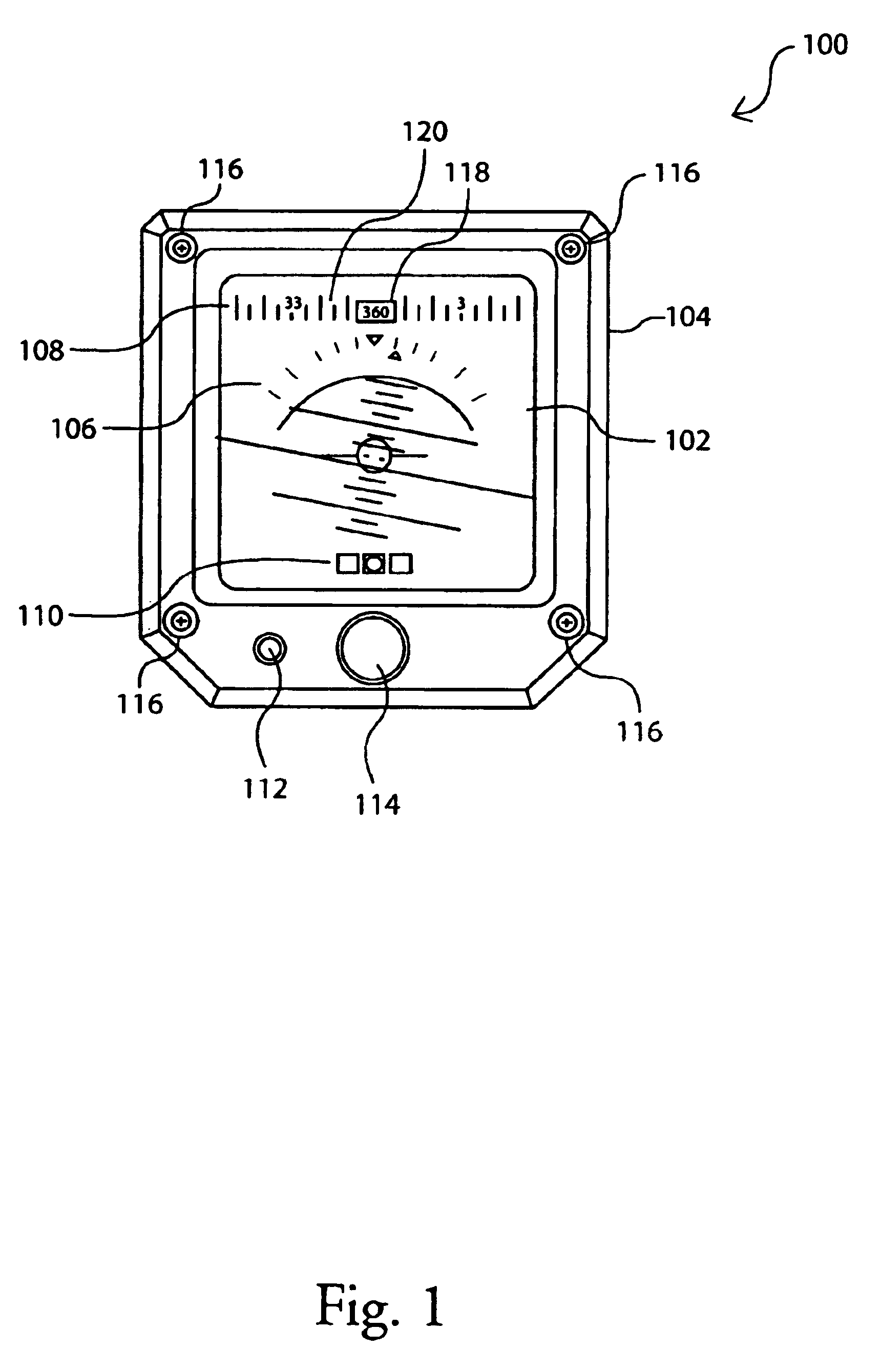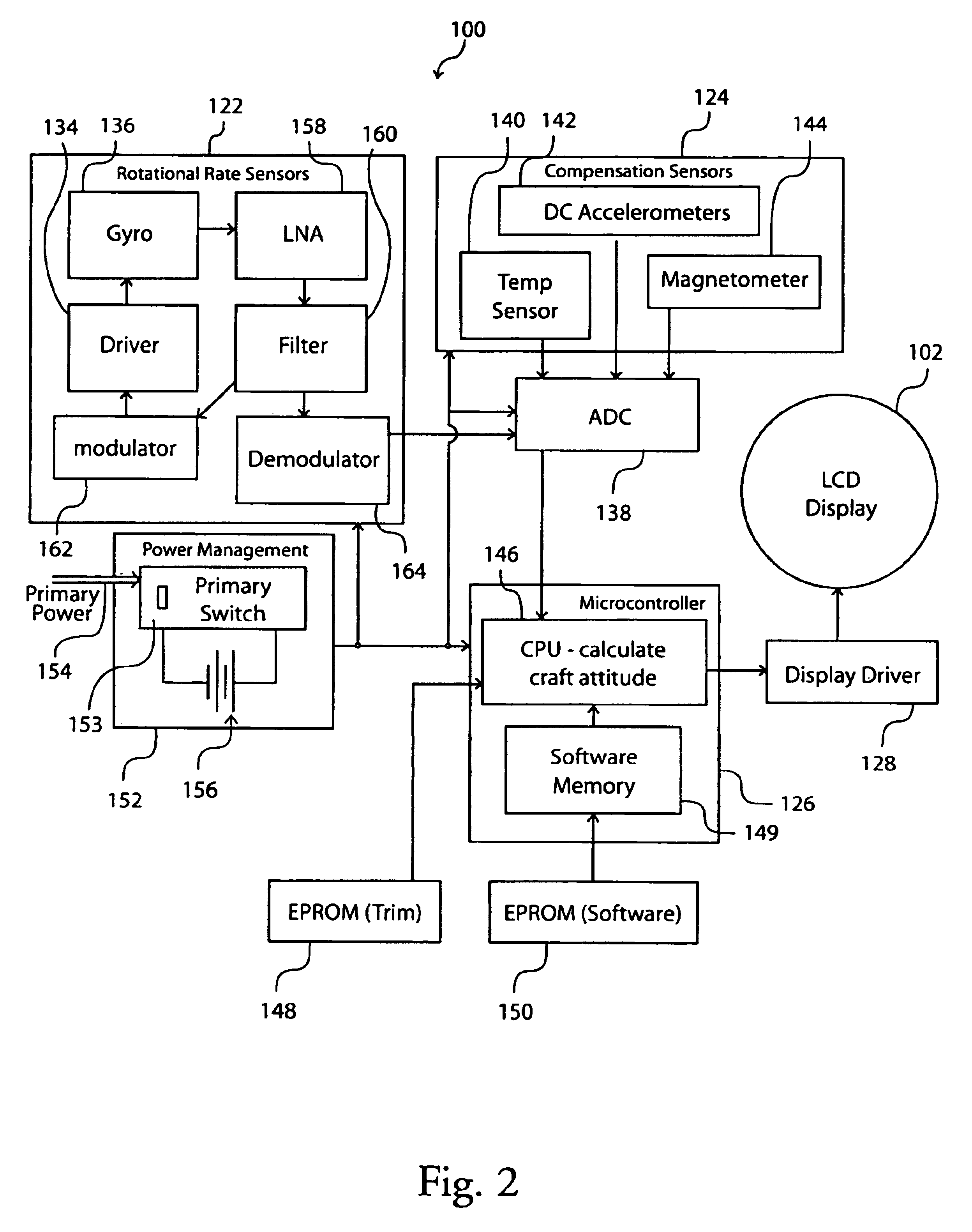Piezoelectric rate sensor system and method
a sensor system and piezoelectric technology, applied in the field of aircraft instruments, can solve the problems of pilot disorientation, fatal crashes, and the cost of having a second set of primary instruments is prohibitively expensive for a small aircraft, and achieve the effects of reducing costs, simple retrofitting, and sensitive to extra weigh
- Summary
- Abstract
- Description
- Claims
- Application Information
AI Technical Summary
Benefits of technology
Problems solved by technology
Method used
Image
Examples
Embodiment Construction
As an example, a standby gyroscopic navigation system 100 is disclosed in preferred embodiments of the present invention. It is appreciated that the system in accordance with the present invention may be used as a primary navigation system. The preferred embodiments of the present invention provide a three-dimensional, solid-state gyroscopic navigation system that is battery-driven and functions independently of the aircraft's primary power systems, both electric and vacuum.
Preferred embodiments of the standby gyroscopic navigation system 100 as shown in FIGS. 1-10 include high-performance solid-state gyroscopes, on-board signal processing electronics, color liquid crystal display (LCD), a back-up battery, and other sensors, such as magnetometers, etc.
The present invention reflects the trend to reduce pilot workload by displaying multiple functions on a single display. The system 100 simultaneously displays data, traditionally provided by three separate instruments, attitude indicat...
PUM
 Login to View More
Login to View More Abstract
Description
Claims
Application Information
 Login to View More
Login to View More - R&D
- Intellectual Property
- Life Sciences
- Materials
- Tech Scout
- Unparalleled Data Quality
- Higher Quality Content
- 60% Fewer Hallucinations
Browse by: Latest US Patents, China's latest patents, Technical Efficacy Thesaurus, Application Domain, Technology Topic, Popular Technical Reports.
© 2025 PatSnap. All rights reserved.Legal|Privacy policy|Modern Slavery Act Transparency Statement|Sitemap|About US| Contact US: help@patsnap.com



